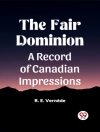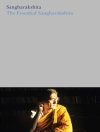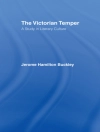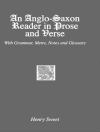One of E.M. Forster’s most cherished and critically-acclaimed works, ‘Howards End’ is an examination of social mores, class strife and personal relationships in turn-of-the-century England.
The story revolves around three disparate families: the idealistic Schlegels (consisting of Margaret, Helen and brother Tibby), the wealthy Wilcox family (parents Henry and Ruth and their children) and the impoverished Basts (Leonard and his wife Jacky).
When the Wilcox family moves to London and discover they are living close to their new acquaintances the Schlegels, a friendship is kindled between the infirm Ruth Wilcox and Margaret Schlegel. Ruth – who has a strong attachment to her country house called Howards End – pens a note leaving the house to Margaret, but Henry and his children both conceal and burn the note to prevent its discovery.
What follows is a series of events that threaten to destroy all three of the families: broken engagements, infidelities and even a secret pregnancy, all leading to a shocking death and prison sentence for one of the protagonists.
A classic of early 20th century literature, ‘Howards End’ has been adapted numerous times for the stage and screen, most notably for the 1992 Oscar-winning Merchant Ivory film starring Emma Thompson, Anthony Hopkins and Helena Bonham Carter. It is presented here in its original and unabridged format.
Mengenai Pengarang
Edward Morgan Forster (1879-1970) was an English novelist, short story writer and essayist best known for his books A Room with a View (1908), Howards End (1910) and A Passage to India (1924). The only child of parents Edward and Lily Forster, young Edward lost his father to tuberculosis before he turned two. Lily and Edward subsequently moved to a country house in Hertfordshire called Rooks Nest, which served as a model for the eponymous house in the book Howards End. Edward inherited a considerable sum of money that allowed him to embark on a career as a writer. He attended Tonbridge School in Kent and then went to King’s College in Cambridge where he joined a secret society known as the Apostles, several members of which later helped form the Bloomsbury Group, a literary/philosophical society that boasted such early members as Virginia Woolf, John Maynard Keynes and Vanessa Bell. Upon graduation, Forster went abroad – often escorted by his mother – and wrote of his travels extensively. Upon his return, he set up residence in Weybridge, Surrey where he would write all six of his novels. All of his books were written between 1908 and 1924 and his last, A Passage to India, won the James Tait Black Memorial Prize for fiction. Forster was a homosexual and while he never married, he did have several affairs with male lovers during his lifetime, including a forty-year romance with married policeman Bob Buckingham, at whose home he collapsed and died at age 91 of a stroke. Forster explored his struggle with his own sexuality in his book Maurice. Forster was extremely critical of American foreign policy during his lifetime and rebuffed efforts to film adaptations of his novels due to the fact that the productions would likely use American financing. After his death, however, several of his books were made into films and three of them – A Room with a View, Howards End and A Passage to India are among the most highly regarded films of the late 20th century.












